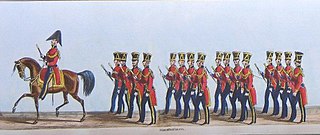Knight Marshal
From Wikipedia, the free encyclopedia
From Wikipedia, the free encyclopedia
The Knight Marshal is a former office in the British Royal Household established by King Henry III in 1236. The position later became a Deputy to the Earl Marshal from the reign of King Henry VIII until the office was abolished in 1846.[1]

The Knight Marshal and his men were responsible for maintaining order within the King's Court (Court of Marshalsea or Palace Court) which was abolished in 1849.
According to The Present State of the British Court, published in 1720,
"The Knight Marshal is an Officer employ'd in the King's Court or Marshalsea, and the Marshal's Men under him are properly the King's Bailiffs. They arrest in the Verge of the Court {i.e. within a 12 mile radius of the Sovereign's palace} when a Warrant is back'd by the Board of Green-cloth. The Knight Marshal and his Men have place in all publick Cavalcades, at Declaring of War, Proclaiming Peace, publick Entries and Processions made by the Soveraign."
The Knight Marshal was appointed by the Crown for life by letters patent under the great seal frequently in the form of grants in reversion. Board wages were fixed at £21 5s 10d in 1662. In 1685, a salary of £26 was provided. This was raised to £500 in 1790 but reduced to £271 in 1816.
The separate office of Knight Marischal exists in the Royal Household of Scotland, but has not been filled since 1863.

A token number of Marshalmen continued to be appointed even after the demise of the Marshalsea Court; they became honorary appointments within the Royal Household and were in attendance on the Sovereign on ceremonial occasions. Six King's Marshalmen took part in the 1937 Coronation procession of King George VI;[10] since when appointments to this office have ceased. The Marshalmen wore a distinctive uniform, consisting of a scarlet coat, blue trousers and a shako (a tall, cylindrical cap with a visor), and carried a baton engraved with the Royal Arms at one end, and at the other the coat of arms of the City of Westminster.[11]
Seamless Wikipedia browsing. On steroids.
Every time you click a link to Wikipedia, Wiktionary or Wikiquote in your browser's search results, it will show the modern Wikiwand interface.
Wikiwand extension is a five stars, simple, with minimum permission required to keep your browsing private, safe and transparent.